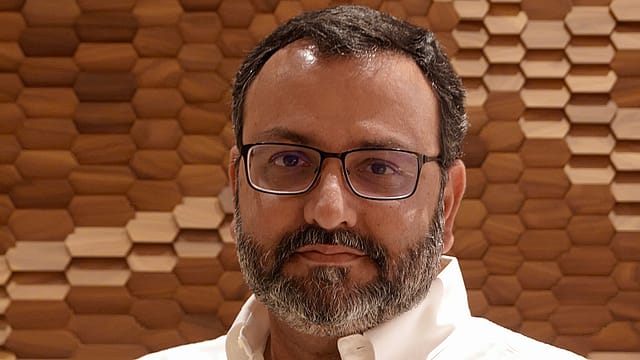The NCLAT judgement and after
ADVERTISEMENT

Has the National Company Law Appellate Tribunal (NCLAT) exceeded its mandate by reinstating Cyrus Mistry as the executive chairman of Tata Sons and a director in other Tata group companies? By declaring the appointment of the current chairman N. Chandrasekaran illegal, has the NCLAT put a question mark on the legality of the decisions taken by him ever since he took over as chairman in February 2017?
Similarly, what happens to the decisions taken by him from now till the day the Supreme Court passes an interim or a final order on the NCLAT judgement, once Tata Sons move the apex court within the next four weeks. What happens if the Supreme Court upholds the decision of the NCLAT?
January 2026
Netflix, which has been in India for a decade, has successfully struck a balance between high-class premium content and pricing that attracts a range of customers. Find out how the U.S. streaming giant evolved in India, plus an exclusive interview with CEO Ted Sarandos. Also read about the Best Investments for 2026, and how rising growth and easing inflation will come in handy for finance minister Nirmala Sitharaman as she prepares Budget 2026.
Those are some of the questions that are being debated in the country’s legal circles after the NCLAT came out with its order on Wednesday, in the case of Cyrus Pallonji Mistry versus Tata Sons Limited. It not only reinstated Mistry to his earlier position but declared Chandrasekaran’s appointment illegal, as well as held that the majority shareholder had suppressed the minority shareholder, while setting aside Tata Sons’ decision to convert itself into a “private company.”
Many legal experts believe that it is unclear how the tribunal has linked minority shareholders’ rights with that of restoring the position of Mistry as executive chairman of Tata Sons and a board member in various Tata group companies.
“The NCLAT order is not clear as to how the protection of economic rights of minority shareholders translates into or extends to a mandatory participation in the management of the company as executive chairman,’’ says Hemant Sahai, founder and managing partner of HSA Advocates.
He argues that under the Companies Act, 2013, a minority shareholder does not have any statutory right to be represented on the board or in an executive position like an executive chairman or managing director. The right to be a board member or an executive director flows either under a shareholders’ agreement or a contract between the company and the individual to be appointed to an executive position. Failing this, the prerogative to appoint executive directors remains with majority shareholders.
The job of The Companies Act of 2013, says Sahai, is to ensure that minority shareholders are not economically prejudiced or oppressed by the majority shareholders. He says the judgement assumes greater importance in the light of the fact that Mistry will be reinstated as director in several Tata group companies, including listed entities that are under the regulatory domain of a separate independent statutory regulator—SEBI.
The issue regarding the validity of decisions taken by Chandrasekaran during his tenure is a point of debate as well. Mukesh Butani, founder, BMR Legal, a Delhi-based law firm says that under the Doctrine of Indoor Management, decisions taken by Chandrasekaran as chairman will remain valid. These include his decisions like settling issues with Tata Sons’ Japanese telecom partner NTT Docomo.
This decision of the NCLAT lay down a unique legal principle on oppression of rights of a minority shareholder by a majority given the facts of the Tata-Cyrus case, he says. Depending on the Supreme Court staying certain parts of the NCLAT’s decision, Tata Sons will have to convert itself into a public company as the NCLAT has questioned the decision of its conversion into a private company.
Under the Doctrine of Indoor Management, once people are satisfied that all the transactions have been carried out in accordance with the memorandum and articles of associations, those dealing with the company need not inquire whether proceedings relating to the contract are followed correctly.
Since, the decisions were taken by the board collectively, and not by Chandrasekaran alone, they should be held valid. But most legal experts believe that till the time the Supreme Court gives its final decision, the existing chairman is unlikely to take any major decision, leaving it to respective boards of the Tata group companies to do the heavy lifting.
“Till the SC provides an interim protection or finality, Chandrasekaren will not be empowered to take executive decisions as an executive chairman,’’ says Sahai.
“It would also be improper for him to take any significant executive decisions till further clarity is received from the Supreme Court.”
This decision of the NCLAT is unique from a legal standpoint because it talks about corporate governance of a private company, says Butani, because corporate governance is not a term that is used in law.
However, unless the Supreme Court puts a stay on the NCLAT’s decision, Tata Sons will once again have to become a public company and not a private one.
Of course, the Tata group will appeal in the Supreme Court against the decision.
As senior advocate Abhishek Manu Singhvi argues, “Though we are deeply disappointed by the NCLAT decision, we are going to take recourse to all legal processes, including moving to the Supreme Court to challenge its correctness,’’
On December of 2016, two firms owned by Cyrus Mistry’s family—Cyrus Investments and Sterling Investments—had filed a case of oppression and mismanagement against Tata Sons and 20 others, including Ratan Tata. The dispute emerged from Mistry’s removal as Tata Sons chairman in October 2016, and later as director.
